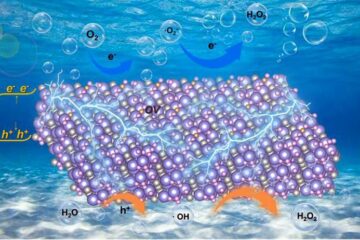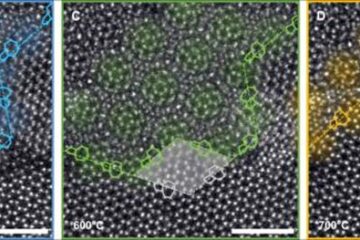Boost for Methanol?

As a possible energy source for fuel cells or a substitute for gasoline, methanol is increasingly drawing attention beyond its importance as a feedstock for chemical industry. It can be stored much more efficiently and cheaply than hydrogen and could be distributed by way of the existing network of fuelling stations.
The disadvantage is the truly complex synthesis of methanol from natural gas via a detour through synthesis gas. One interesting alternative that was pursued and then abandoned is known as the direct low-temperature oxidation of methane to methanol.
A team led by Ferdi Schüth at the Max Plank Institute of Coal Research in Mülheim (Germany) and Markus Antonietti at the Max Planck Institute for Colloids and Interfaces in Potsdam-Golm (Germany) has now developed a novel catalyst. As the researchers report in the journal Angewandte Chemie, this could provide a second wind, if not a major breakthrough, for this process.
“The development of catalyst systems for the direct low-temperature oxidation of methane to methanol has been one of the major challenges in catalysis over the last decades,” says Schüth. The problem is that the bonds in methane are very strong and difficult to break. In addition, under the reaction conditions required, methanol has the tendency to react further to form carbon dioxide. The process thus requires not only highly active but also highly selective catalysts.
One breakthrough was the development of a platinum complex by a research group led by Roy Periana. This complex catalyzes the low-temperature oxidation of methane in concentrated sulfuric acid at temperatures around 200 °C to form methyl sulfate—which can be converted into methanol—in good yield and high selectivity. Despite highly promising results, the complex separation and difficult recycling of this dissolved catalyst, among other things, hampered the commercial application of this process. Development proceeded to the pilot-plant stage before being abandoned. “A solid catalyst that can be easily separated could make such a process viable on a small scale, making possible the efficient, decentralized consumption of natural gas,” says Schüth.
The German researchers have now been able to develop such a solid catalyst, whose high reactivity and selectivity, and its outstanding stability through numerous recycling steps, have raised hopes of its industrial implementation. “Our development is based on a recently discovered class of high-performance polymers,” explains Anonietti. Polymerization of a ring-shaped molecule, an aromatic nitrile, results in a network known to chemists as a “covalent triazine-based framework”, abbreviated as CTF. Loading this substance with platinum results in a highly active, easily separated, and recyclable catalyst.
Author: Ferdi Schüth, Max-Planck-Institut für Kohlenforschung (Germany), http://www.mpi-muelheim.mpg.de/kofo/mpikofo_home.html
Title: Solid Catalysts for the Selective Low-Temperature Oxidation of Methane to Methanol
Angewandte Chemie International Edition 2009, 48, No. 37, 6909–6912, doi: 10.1002/anie.200902009
Media Contact
All latest news from the category: Life Sciences and Chemistry
Articles and reports from the Life Sciences and chemistry area deal with applied and basic research into modern biology, chemistry and human medicine.
Valuable information can be found on a range of life sciences fields including bacteriology, biochemistry, bionics, bioinformatics, biophysics, biotechnology, genetics, geobotany, human biology, marine biology, microbiology, molecular biology, cellular biology, zoology, bioinorganic chemistry, microchemistry and environmental chemistry.
Newest articles

How 3D printers can give robots a soft touch
Soft skin coverings and touch sensors have emerged as a promising feature for robots that are both safer and more intuitive for human interaction, but they are expensive and difficult…

Oxygen vacancies mediated ultrathin Bi4O5Br2 nanosheets
… as efficient piezocatalyst for synthesis of H2O2 from pure water. As an important chemical raw material, hydrogen peroxide (H2O2) is widely applied in various aspects of industry and life….

Atom-by-atom: Imaging structural transformations in 2D materials
Silicon-based electronics are approaching their physical limitations and new materials are needed to keep up with current technological demands. Two-dimensional (2D) materials have a rich array of properties, including superconductivity…





















